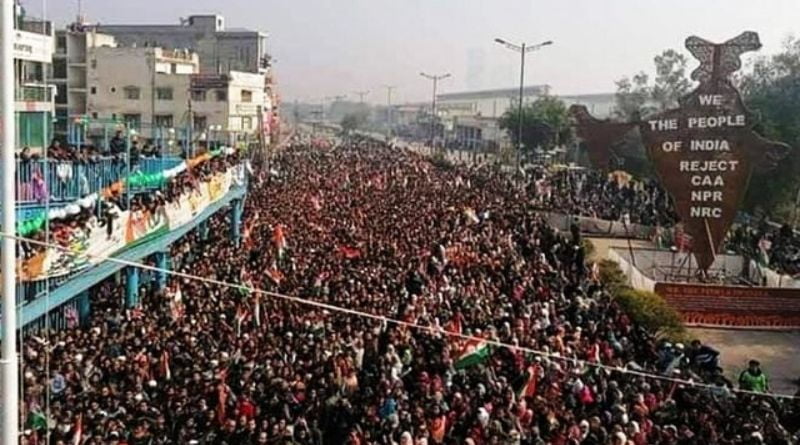
In India, a simmering controversy has just reached a boiling point. The Citizenship Amendment Act, or CAA, has finally been notified by the government, just weeks before the crucial 2024 Lok Sabha elections.
This law, let’s just say, is a lightning rod. It amends India’s citizenship laws by offering a path to citizenship for persecuted minorities – Hindus, Sikhs, Buddhists, Jains, Parsis, and Christians – from Pakistan, Afghanistan, and Bangladesh, who entered India before December 31st, 2014. But here’s the twist: Muslims are conspicuously absent from that list.
Now, you can imagine the uproar. Critics say this blatantly discriminates against Muslims, violating the very foundation of India’s secular constitution. Protests erupted across the country in 2019, some turning violent, claiming over 100 lives. Opposition parties, particularly in states with significant Muslim populations, have been vehemently opposed to the CAA.
The Notification and the Political Maelstrom
This notification, then, is a major development. It allows the central government to officially start processing applications for citizenship from eligible non-Muslim migrants. The Home Ministry assures a smooth online process, with no additional documentation required.
This move comes as no surprise. The Bharatiya Janata Party, or BJP, which leads the central government, made the CAA a central plank of their 2019 election campaign. Home Minister Amit Shah, a key figure in pushing this law through Parliament, has repeatedly stated the CAA will be implemented before the upcoming polls.
Opposition Erupts: Mamata Banerjee Leads the Charge
But the notification has ignited a firestorm of opposition. Leading the charge is the fiery Chief Minister of West Bengal, Mamata Banerjee. She’s a long-time critic of the CAA, and tonight, she wasted no time in slamming the government.
“We will steadfastly oppose anything that discriminates against people,” declared Ms. Banerjee. She accuses the BJP of playing a political game, using the CAA for “lollipop and show-off” just before the elections.
West Bengal is a crucial battleground for the BJP, with 42 Lok Sabha seats up for grabs. The party needs 370 seats for a majority in the lower house, and Bengal could be a game-changer. Ms. Banerjee knows this, and she’s determined to thwart the BJP’s plans.
Beyond Bengal: A National Debate
Ms. Banerjee isn’t alone. Opposition leaders across the country are echoing her concerns. MK Stalin, the Chief Minister of Tamil Nadu, vowed not to implement the CAA in his state, accusing the BJP of jeopardizing communal harmony.
Several other states, including Kerala, Punjab, and some previously ruled by the Congress party (like Rajasthan and Chhattisgarh), have also opposed the CAA. Some states even passed resolutions against the law.
The Northeast: A Region Scarred by Unrest
The situation in the northeast is particularly sensitive. Parts of the region were rocked by violent protests against the CAA back in 2019. Now, with the notification, the Assam Students Union, a powerful student organization, has called for renewed agitations.
This is a region with a complex history of immigration and religious tensions. The CAA’s exclusion of Muslims has stoked fears of disenfranchisement and marginalization.
The Rationale and the Rebuttal
The government justifies the CAA by arguing it offers a safe haven for persecuted minorities fleeing Muslim-majority countries. However, critics see this as a smokescreen, a way to marginalize and potentially disenfranchise millions of Indian Muslims.
The debate is about the very soul of India. Is it a secular nation that embraces all faiths, or is it tilting towards a Hindu-centric identity? This question will likely reverberate throughout the upcoming elections, making the coming weeks a crucial time for Indian democracy.
We’ll be following this story closely, bringing you the latest developments and expert analysis. In the meantime, let us know your thoughts on the CAA. Is it a step towards religious equality or a discriminatory measure? Join the conversation online and let your voice be heard. Remember, in a democracy, no voice is too small.



